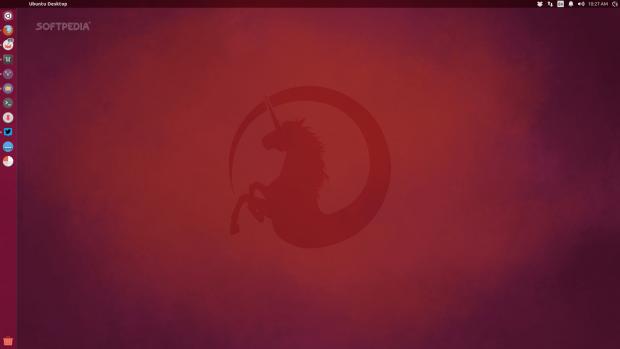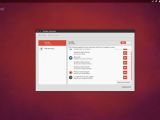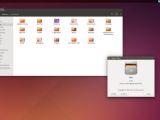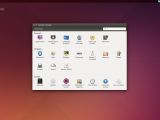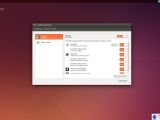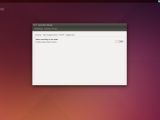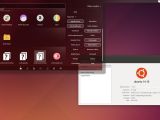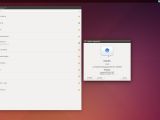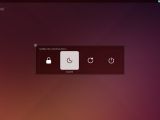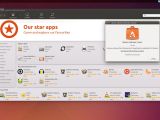Ubuntu 14.10 (Utopic Unicorn), the latest operating system released by Canonical, is here right on time, six months after the previous version. We now take a closer look at the new OS and we'll try to see what has been changed and how it compares with previous iterations.
Canonical has a very precise timetable for its releases, and they never miss a beat. Ubuntu 14.10 arrived on time, although some users will say that it's a little bit dry, especially for something that has a different build number. As it stands right now, the new Ubuntu version could be considered just a simple update to the 14.04 LTS release, but it's a little more than that.
It's not unusual for two consecutive Ubuntu versions to be very similar, but this is probably the first time that no new UI changes have been made and no new functionalities have been added. Sure enough, there are plenty of updated packages under the hood, but many users will only see that the system looks basically the same with Ubuntu 14.04 LTS.
Many users appreciate when some things are changed or improved. For example, the fact that the menus can be moved from the top bar to the title bar of the window with just one click is actually a very important option to have, but nothing like that has been implemented in 14.10. So, for this review, we'll have to stick to the boring stuff, but at least we have something to talk about.
Installation
If you have Ubuntu 14.04 LTS installed, it's quite easy to upgrade to the next version. There are many users who will choose to stick with Ubuntu 14.04 LTS for the time being, but some will want to upgrade. If you have already modified the settings for the upgrade process, you might get a dialog window telling you that a new version is available. If not, all you have to do is to open Software & Updates, go to the third tab called Updates, and change the last option named "Notify me of a new Ubuntu version."
After closing that window, you just have to open the Software Updater and you will get prompted with the upgrade. It will take a while to download all the packages and to install everything, but after the restart you will have Ubuntu 14.10 (Utopic Unicorn).
Usage
Because the visual aspect of the distribution hasn't changed, I've decided that the interface could use a new look. I'll be posting some screenshots with the default theme, but a few of the others will have a custom one. Maybe that will shake things up a bit.
By the looks of it, the system is just as stable as Ubuntu 14.04 LTS, although it does come with a much shorter support period, of just nine months. All the regular default applications that have been present until now have been updated. The default ones include Mozilla Firefox 33, Mozilla Thunderbird 31.2.0, and LibreOffice 4.3.2.2.
As usual, Ubuntu 14.10 comes with a huge Unity launcher, which can be resized form the options, and online searches enabled by default. They can be easily disabled from the Security & Privacy panel, which also features a number of other options.
The developers have also said that Unity 7 has a number of fixes that should make it more reliable, although there are no visual changes. A more interesting bugfix comes for an application that’s not even installed by default. Ubuntu 14.10 still ships with Empathy (3.8.6), which is still a problematic and unappealing messaging client, but many users choose Pidgin as the replacement. The Unity integration of Pidgin is now working a lot better, and despite some minor inconveniences, it's still the best choice.
Everything else that you've come to expect from an Ubuntu system is here. Most of the more important themes work with the new edition, the drivers in the repositories are still rather old, the OS ships by default with the freeware video drivers, and there is no sign that the default theme will be changed or improved anytime soon.
The Good
The Bad
This is also probably the reason why some of the GNOME packages used are still from the 3.10 branch, which is very old. It's a strange decision for sure, but it probably has to do with resource allocation. There weren't enough devs available to make the changes, or they just didn't have the time.
Conclusion
You might get some new features out of the new Linux kernel, but the same drivers work on both distributions. It all boils down to the user's free time and to his decision to drop an LTS for something a little bit newer.
 14 DAY TRIAL //
14 DAY TRIAL // 
